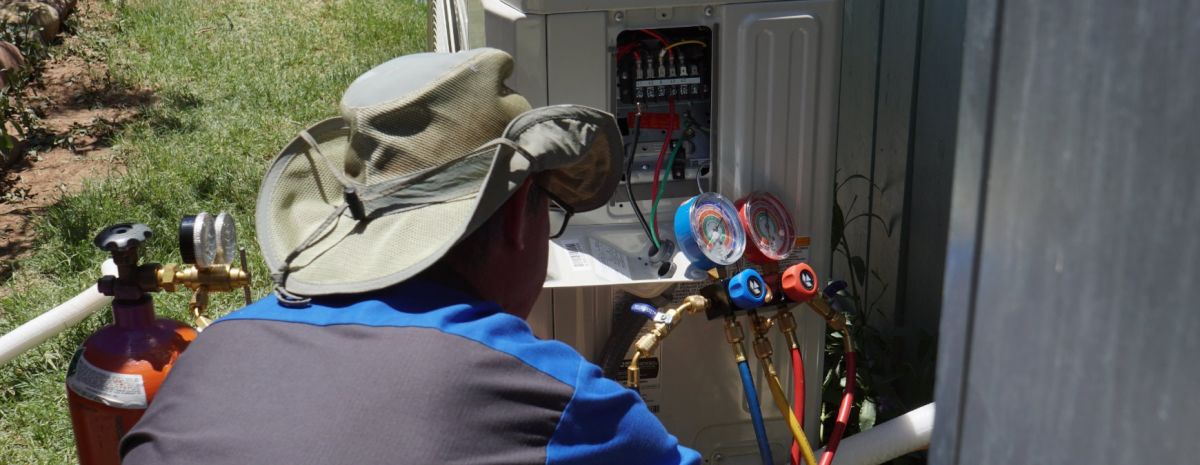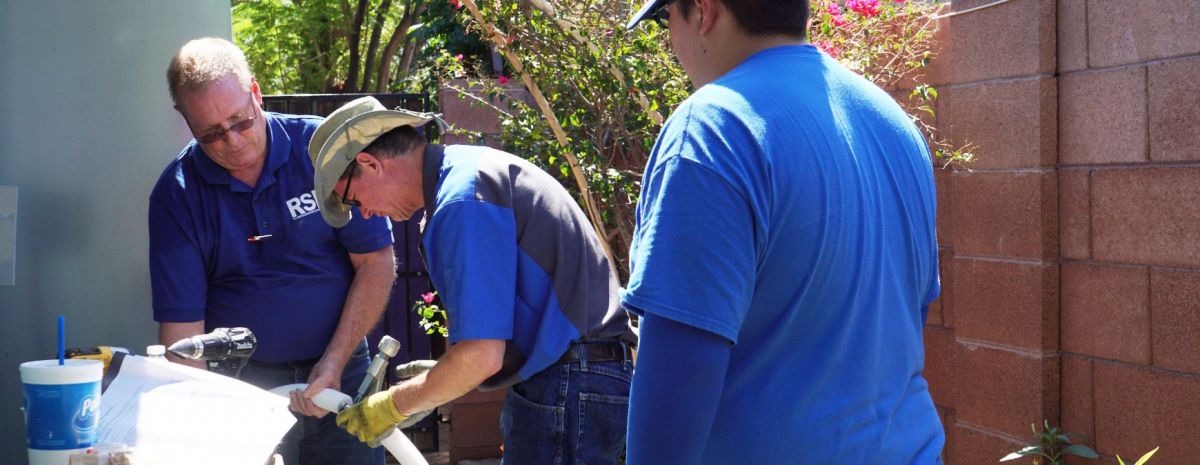RSI is a Great Training Option for Everyone
Learn more about how we can prepare you to advance your career.
Students considering a career as an HVAC technician have a few different training options to consider: trade school, community college or an apprenticeship. The time frame for completing an HVAC training program can range from six months to five years, depending on which option you choose.1
Which training path is right for you? Continue reading for help weighing your options.
What Does an HVAC Technician Do?
HVAC technicians are responsible for installing, maintaining and repairing the equipment that keeps our indoor air comfortable and safe.1
These systems include heating, ventilation and air conditioning units, and some technicians may also service refrigeration equipment. Worksites can include everything from homes to hospitals to factories, which may all have different requirements for air quality and temperature.1
With a wide variety of systems in operation and the increasingly complex nature of these systems, HVAC training is becoming more important. Plus, many employers would rather hire workers with formal training to ensure they’re equipped to work on these sophisticated systems.1,2
Get Started on the Path to a New Career
Fill out our form to learn how we can help you change your life.
Why HVAC Training Is Important
The increased use of technology in today’s HVAC equipment has resulted in systems that can be more efficient and integrate smart features.
Proper training can be important because HVAC technicians must be knowledgeable about these systems, as well as subjects such as electrical work, plumbing and refrigerants. Many of the skills and knowledge necessary to work as an HVAC technician can be learned in a postsecondary training program.1
Plus, certifications may be required depending on the type of work you’ll be doing or which state you’ll be working in. For example, any technician who handles refrigerants must carry EPA Section 608 certification.3
What Types of HVAC Training Are Available?

You can take a few different paths to become an HVAC technician, including going directly into an apprenticeship program, enrolling in a degree program or attending a technical school.
Apprenticeship
An apprentice gets on-the-job training by working alongside a mentor with experience in the trade. Apprenticeships may be expected to have a strong grasp of algebra, geometry and blueprint reading.4,5
Community College
Many community colleges also offer HVAC training courses. Four-year bachelor programs are available at universities but are more favorable for those who are interested in the business side of an HVAC career.6
A two-year associate degree is far more common and more suited to those who want to get to work faster without the additional course requirements of a bachelor’s degree. In addition to coursework in HVAC systems, a two-year program typically requires courses in general education, such as liberal arts and mathematics.6
Trade School
Trade school is another option and perfect for those who want to skip past English composition courses and get right to the hands-on training. The Refrigeration Technologies program at RSI, for examples, offers instruction in:
- Fundamentals of Electricity
- Fundamentals of Refrigeration
- Comfort Systems – Residential
- Comfort Systems – Commercial
- Refrigeration Systems and Practices
- Advanced Troubleshooting
How Long Can Training to Become an HVAC Tech Take?
Apprenticeship
An apprenticeship can be the longest route. Many take up to five years to complete.2
Community College
Most associate degree programs take two years to complete, but some can be completed in 18 months, depending on the program, as well as the degree or certification offered.7 Some programs include general education, such as communications and liberal arts classes.6
Trade Schools
HVAC schools can be the shortest option and can be completed in as little as six months. They’re designed to train students for entry level work as an HVAC tech, and many will prepare students to sit for certification exams, such as those required by the EPA for refrigerant handling.2,8
Get Started Sooner with HVAC School
For anyone considering a career as an HVAC technician, a solid education combined with hands-on training can provide an advantage in today’s competitive job market.1
HVAC training, like the programs offered by RSI, can prepare students for entry level positions in the industry in as little as six months.
When you’re ready to enroll, the RSI team of admissions advisors is here to help you through every step of the process. Contact us to get started! Call 888-671-5803.
Additional Sources
1https://www.bls.gov/ooh/installation-maintenance-and-repair/heating-air-conditioning-and-refrigeration-mechanics-and-installers.htm
2https://www.xbls.gov/ooh/installation-maintenance-and-repair/heating-air-conditioning-and-refrigeration-mechanics-and-installers.htm#tab-4
3https://www.epa.gov/section608/section-608-technician-certification-0
4https://careertrend.com/about-6598845-hvac-apprentice-job-description.html
5https://hvactraining101.com/hvac-apprenticeship/
6https://www.hvacclasses.org/blog/top-hvac-associate-degree-programs
7https://www.hvacclasses.org/blog/top-hvac-associate-degree-programs
8https://www.hvacclasses.org/certification
This blog has been labeled as archived as it may no longer contain the most up-to-date data. For a list of all current blog posts, please visit our blog homepage at https://www.rsi.edu/blog/




